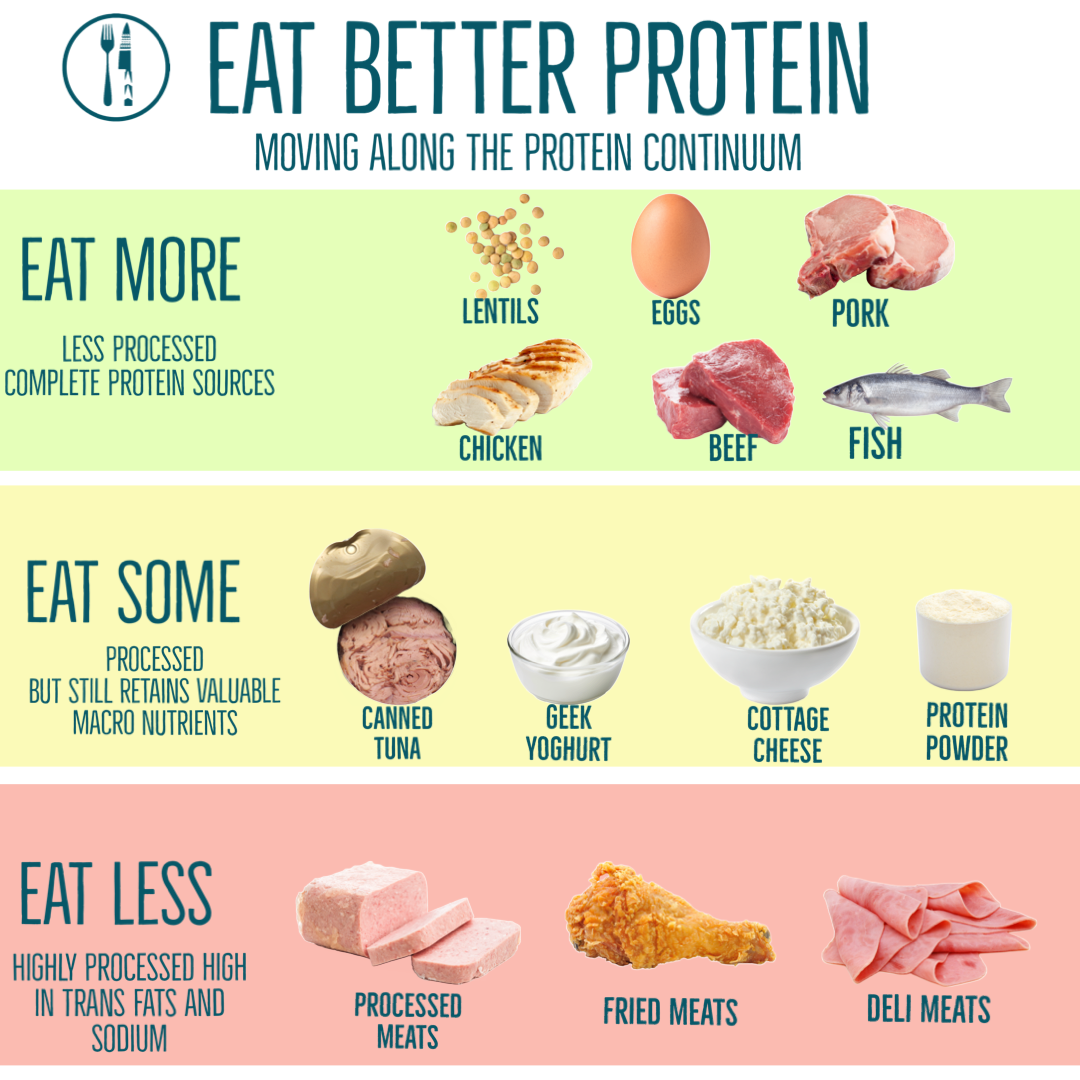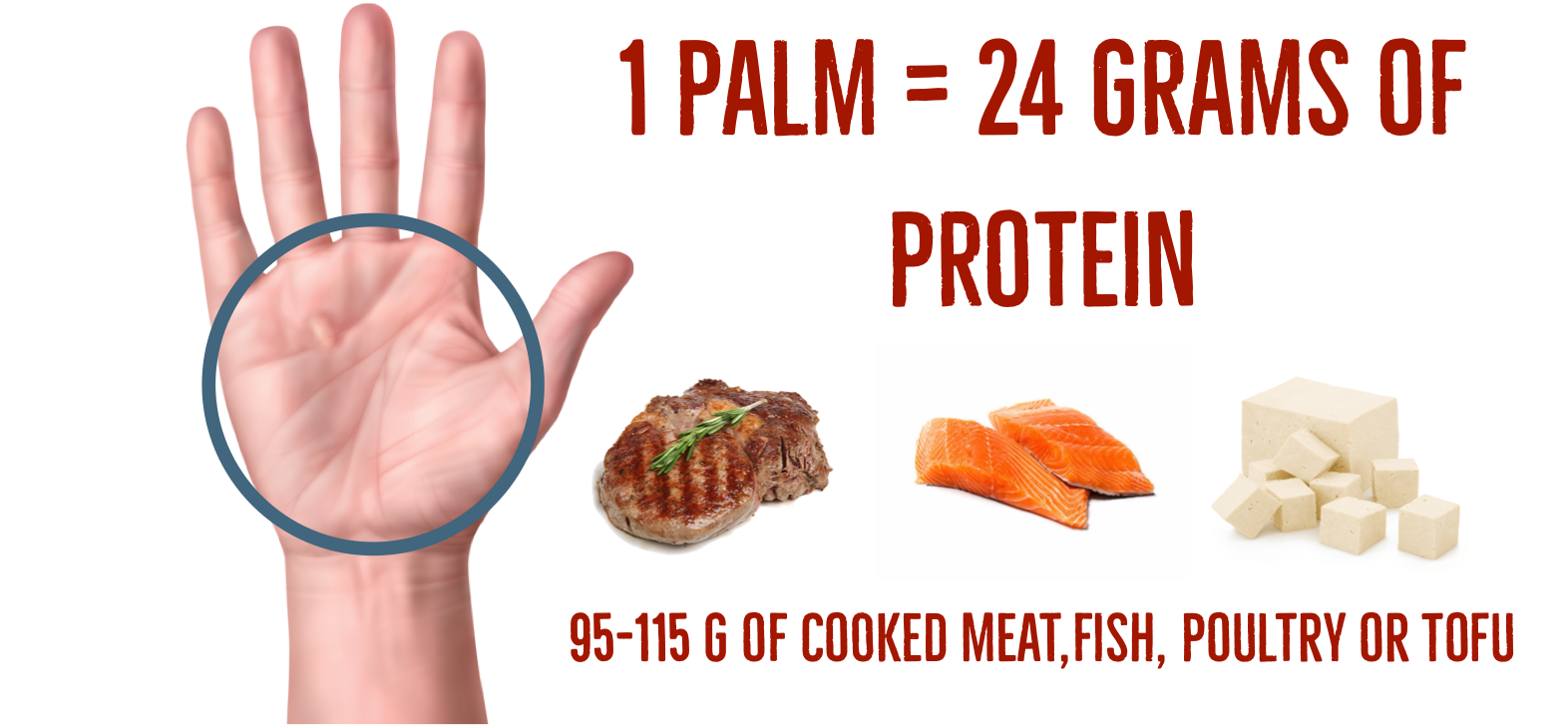Protein is a vital nutrient that supports numerous bodily functions, including muscle repair, enzyme production, and immune health. However, not all protein sources are created equal.
Let’s take a look at what good sources of protein are, the importance of “complete proteins,” and which protein sources to prioritize and avoid.
What is a Complete Protein?
A complete protein contains all nine essential amino acids that the human body cannot produce on its own. These amino acids are crucial for various bodily functions, including muscle growth and repair, hormone production, and immune system support. Consuming complete proteins ensures that you get a balanced profile of these essential amino acids, which is especially important for those with high protein needs, such as athletes and older adults.

Good Sources of Complete Proteins
1. Animal-Based Sources:
- Lean Meats: Chicken, turkey, and lean cuts of beef and pork are excellent sources of complete proteins. They are rich in essential amino acids and provide high-quality protein.
- Fish and Seafood: Fish like salmon, tuna, and cod, as well as shellfish, offer complete proteins along with healthy omega-3 fatty acids.
- Dairy Products: Milk, cheese, and yogurt are not only complete protein sources but also provide calcium and other essential nutrients.
- Eggs: Eggs are one of the best sources of complete protein and are highly versatile in various dishes.
2. Plant-Based Sources:
- Quinoa: This grain-like seed is a rare plant-based source of complete protein, making it an excellent option for vegetarians and vegans.
- Soy Products: Tofu, tempeh, and edamame are complete protein sources derived from soybeans. They are versatile and you can incorporate them into a variety of meals.
- Buckwheat: Another grain-like seed, buckwheat, is a complete protein source and you can use it in baking or as a base for salads.
Complementary Protein Pairing
Incomplete proteins lack one or more essential amino acids. Many plant-based proteins fall into this category, but combining different sources can provide all essential amino acids. This is known as complementary protein pairing.
Examples include:
- Beans and Rice: Together, they form a complete protein.
- Hummus and Whole Wheat Bread: The combination of chickpeas and whole grains provides a complete amino acid profile.
- Peanut Butter and Whole Grain Bread: This classic combination ensures a complete protein intake.
Protein Sources to Limit
Not all protein sources are ideal. Some can be high in unhealthy fats, sodium, and preservatives, which can negatively impact health.
1. Processed Meats:
- Sausages, Hot Dogs, and Bacon: These are often high in saturated fats and sodium, and regular consumption leads to increased risks of heart disease and cancer.
- Deli Meats: While convenient, they can contain high levels of sodium and preservatives.
Beneficial Processed Protein Sources
Not all processed foods are detrimental.
Some can be beneficial for meeting protein needs, particularly for those with higher protein requirements or busy lifestyles.
1. Whey Protein Powder:
- Whey Protein: Derived from milk, whey protein is a complete protein source that the body rapidly absorbs. It is ideal for post-workout recovery and for those needing an easy-to-digest protein source.
- Casein Protein: Another milk-derived protein. The body absorbs casein more slowly, making it suitable for sustained protein release, such as overnight recovery.
2. Plant-Based Protein Powders:
- Pea Protein, Rice Protein, and Hemp Protein: These can be good options for those avoiding dairy. Some blends combine multiple plant proteins to create a complete amino acid profile.

Understanding the differences between complete and incomplete proteins, as well as recognizing the importance of high-quality protein sources, is crucial for maintaining a balanced diet and supporting overall health.
While lean meats, fish, dairy, eggs, and specific plant-based foods are excellent protein sources, it’s essential to limit processed meats due to their health risks. However, beneficial processed protein options, such as whey protein powder, can effectively meet your protein needs, especially when you consider convenience and specific dietary goals.
By making informed choices, you can optimize your protein intake and support your body’s needs effectively.



